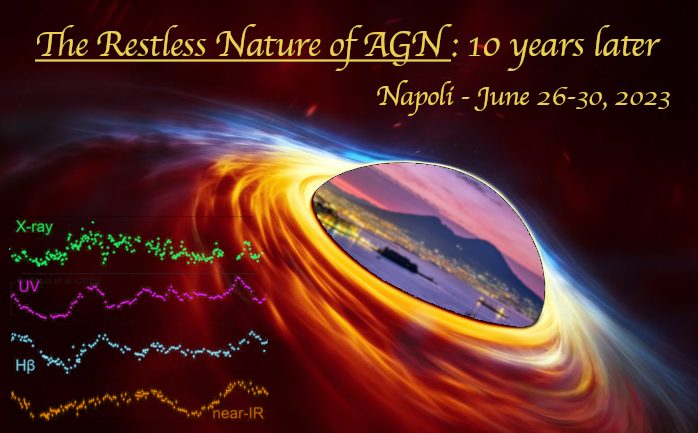Speaker
Description
NGC 6814 is a nearby ($z = 0.005$) Seyfert 1.5 galaxy that we recently showed had undergone a rapid X-ray occultation event during an XMM-Newton observation from 2016. The X-ray eclipse of high column ($N_{\mathrm{H}} \approx 10^{23}~\mathrm{cm}^{-2}$), mildly ionised ($\log\xi \approx 1~\mathrm{erg~cm~s^{-1}}$) matter lasted ~45ks, with ingress and egress each lasting ~14ks, revealing a partially covered X-ray region we estimated to be ~25 gravitational radii across. From August to November 2022 we observed NGC 6814 3-4 times per day with Swift to search for new X-ray eclipses to better understand the environment in this AGN. We present here a new analysis of the 2016 XMM-Newton data using X-ray colour-colour diagrams that reveal an inhomogeneous, clumpy obscurer, which is likely embedded within an extended, large scale structure based on simultaneous and long-term Swift coverage. Our 2022 Swift campaign reveals no new X-ray eclipses, but offers a rich data set with which we conduct the first thermal reverberation analysis of this AGN. We find highly correlated optical/UV to X-ray variability that exhibits a significantly flatter time-lag spectrum than the predicted 4/3 power law relation of a standard X-ray illuminated accretion disc. Furthermore, we find that during the 2016 X-ray eclipse X-rays de-correlate from optical/UV variation before resuming highly correlated broad band variability ~30 days later.

